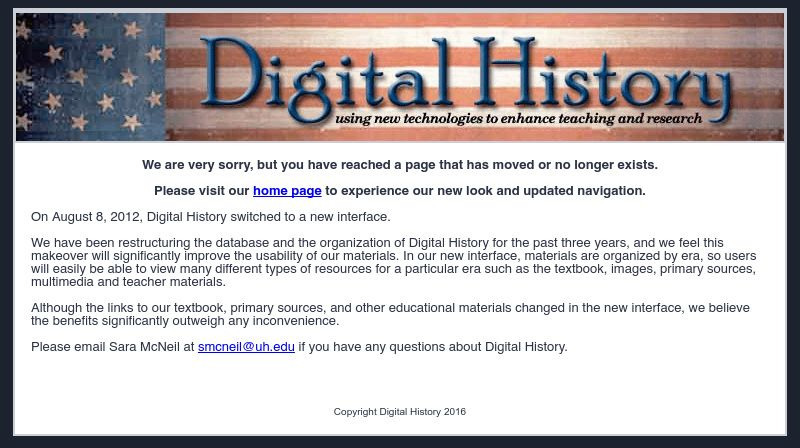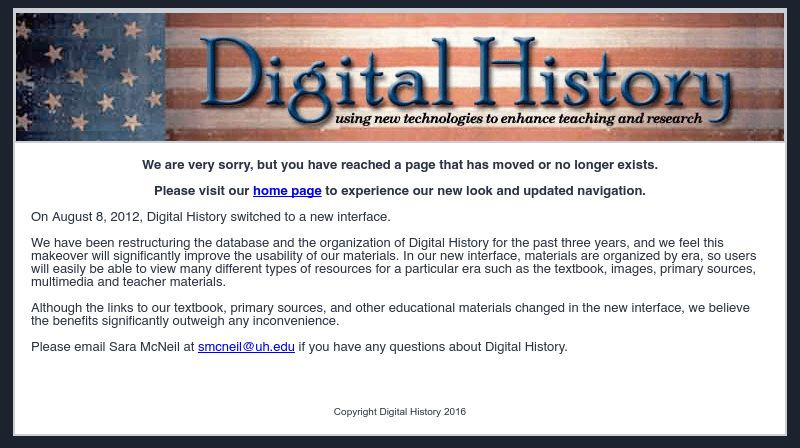Hi, what do you want to do?
Digital History
Digital History: Entering a New Century
As the U.S. approached the new century, it was an appropriate time to reflect on the accomplishments and failures of the 1900s both within the country and internationally.
Art Cyclopedia
Artcyclopedia: Photorealism Art Movement
The biography of the Photorealism art movement founded in the United States during the 1960s and 1970s. Use this site out for more information, artist links and images.
Other
Monthly Review: What Happened to the Women's Movement?
An in-depth magazine article that discusses the history of women's movement, particulary the late-1960s/early 1970s movement. Discusses why the movement faded in the 1980s and how it has been absorped into today's culture.
Digital History
Digital History: Feminism Reborn
This comprehensive survey of the women's movement during the 1960s and 1970s documents women and politics, women's wages, legal discrimination against women, stereotypes of women, women's rights legislation, and women's rights...
Other
Would You believe.com: Catchphrases
A fun website devoted to the popular 1960's TV series, Get Smart starring Don Adams. This show was known for its many catchphrases, some of which are still around.
OpenStax
Open Stax: u.s. History 1968 1980: Identity Politics in a Fractured Society
Discussion of identity politics during the 1960s and 1970s in which underrepresented and marginalized groups organized to fight discrimination and challenge the established political and social culture. Page contains questions for...
Library of Congress
Loc: Baseball, Race Relations and Jackie Robinson
In this lesson, young scholars draw on their previous studies of American history and culture as they analyze primary sources from Jackie Robinson and Other Baseball Highlights, 1860s-1960s in American Memory. A close reading of two...











